Guide to Hospitality Apps: Boost Efficiency & Guest Experience
Oct 16, 2025
 Mika Takahashi
Mika TakahashiPopular Categories
Hotel Technology & InnovationHotel Operations OptimizationDigital MarketingIndustry TrendsRevenue ManagementHospitality Industry
Popular Categories
Trending Post
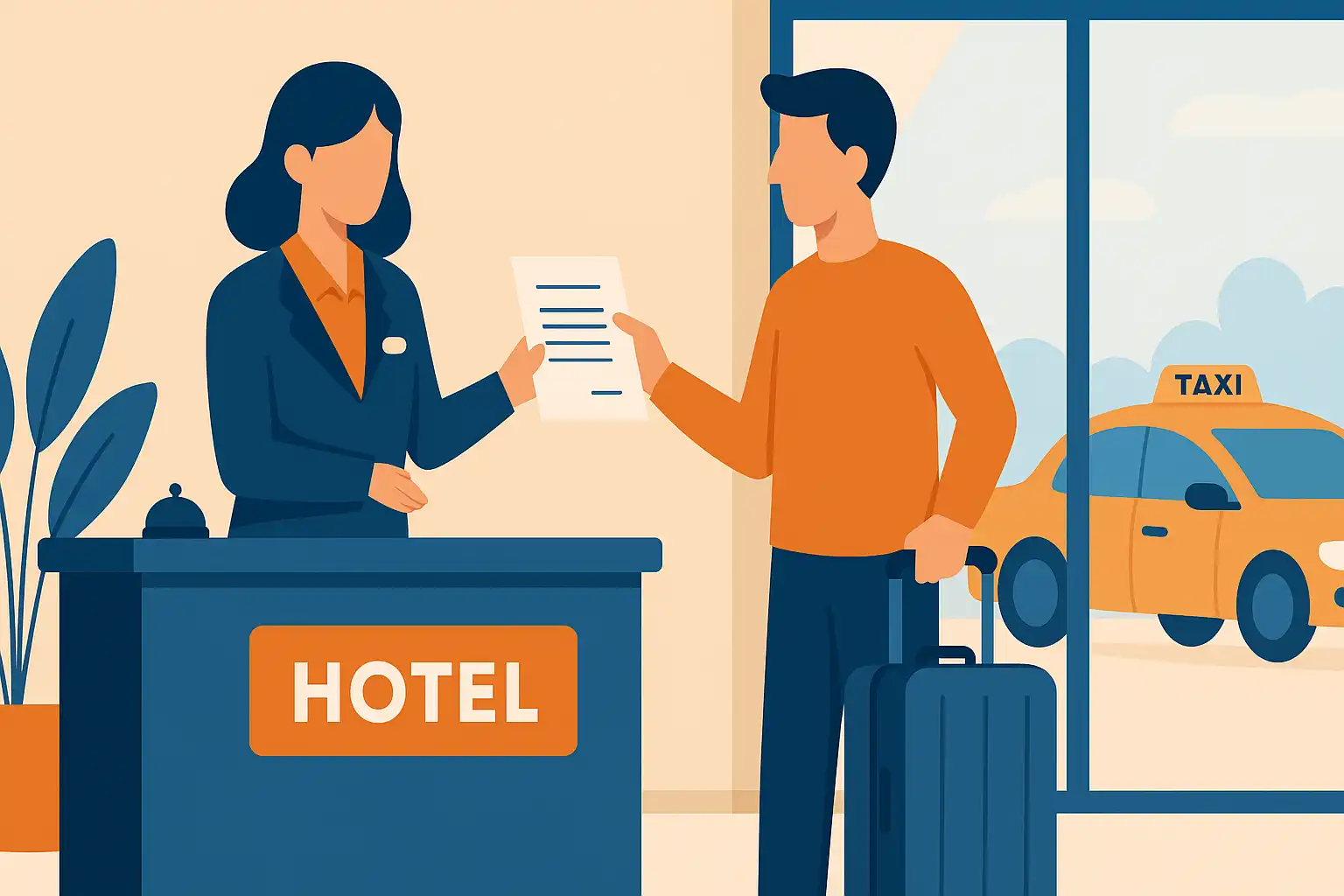
Hotel Walk Letter Template: Professional Guest Communication
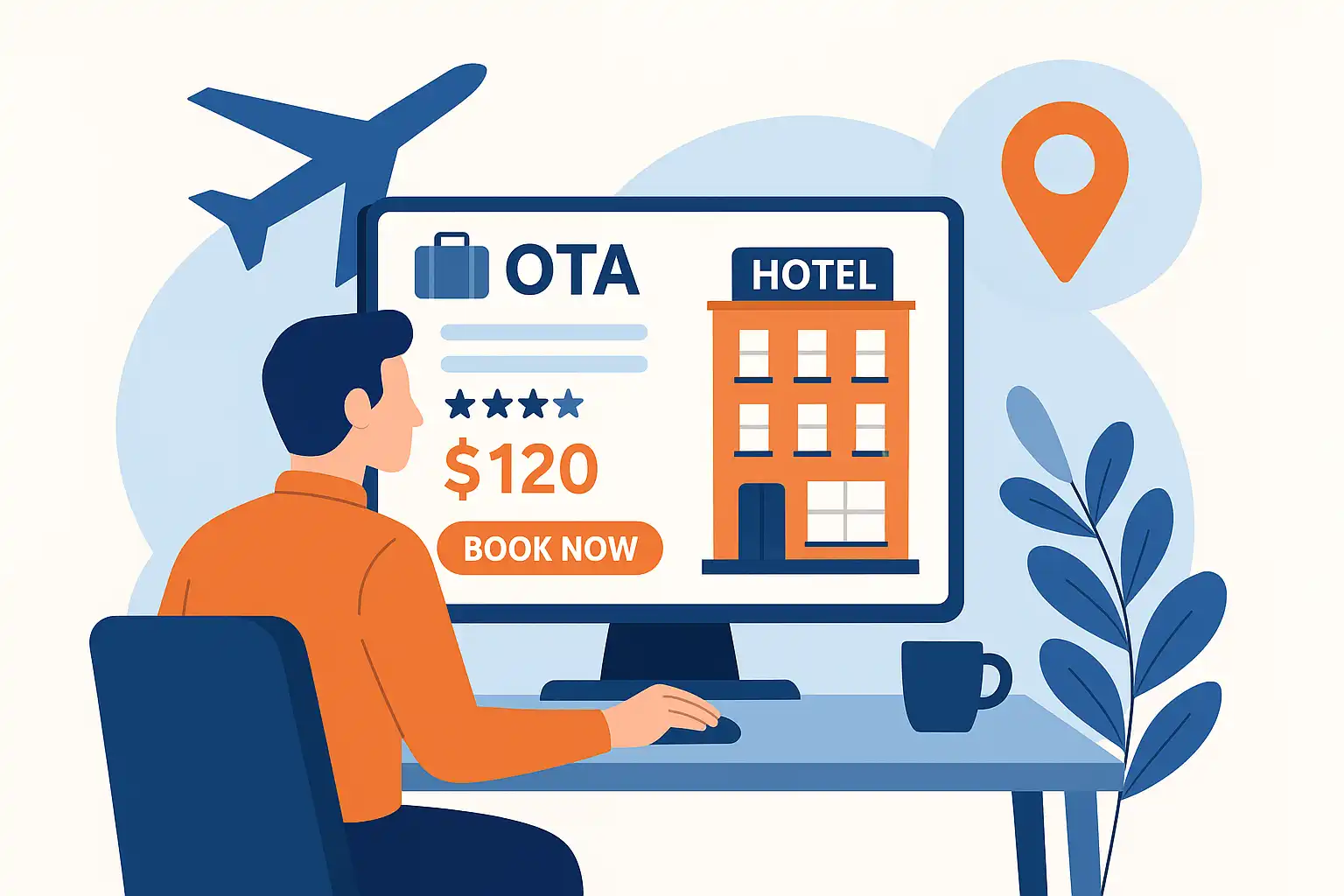
Online Travel Agents: What They Are and How They Work
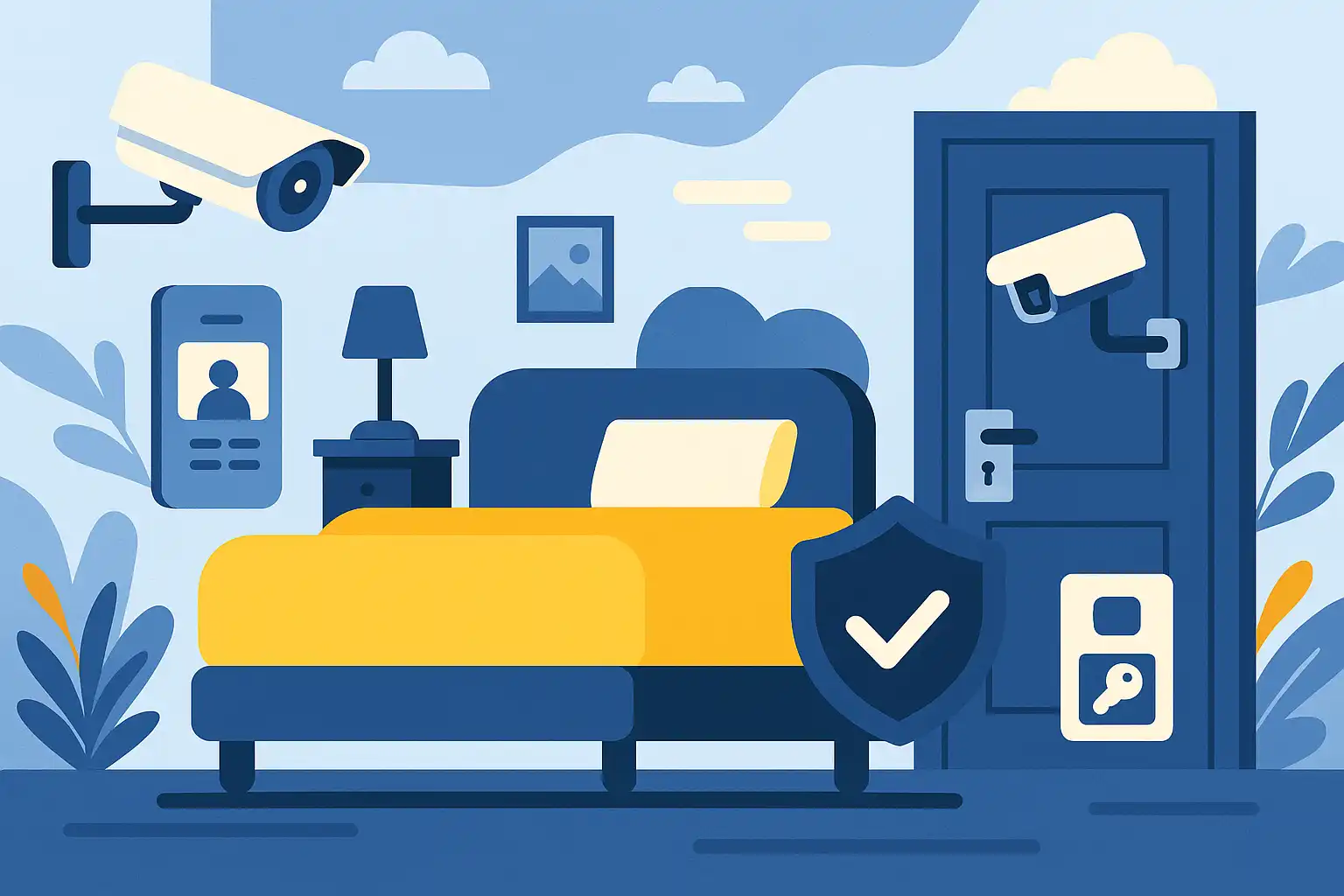
Hotel Security Systems: Modern Protection Solutions

Hotel Advertising: Complete Guide to Boost Bookings and Revenue
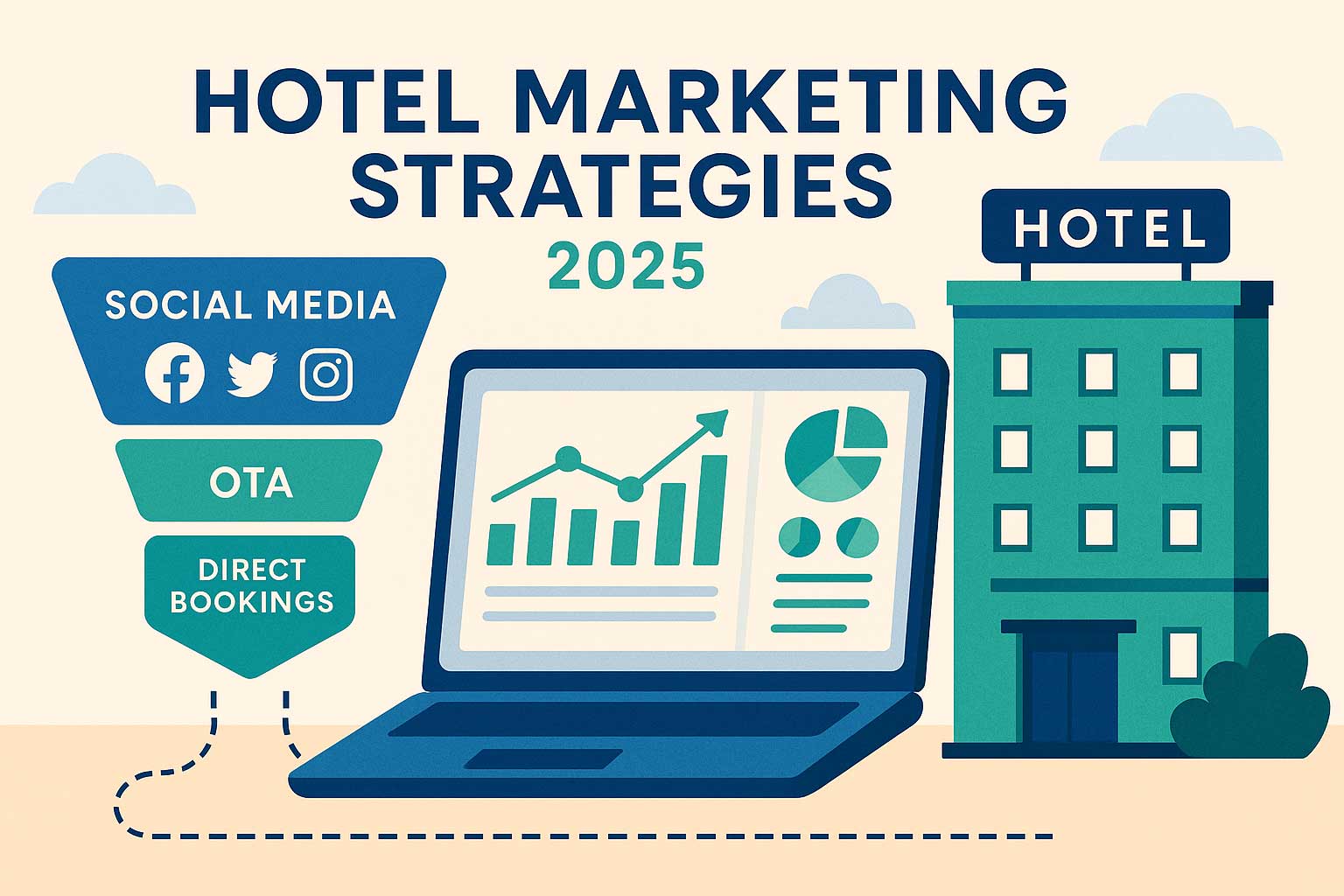
25 Hotel Marketing Strategy Ideas for 2025: Complete Guide

AI Reservation Agent: Revolutionizing Hotel Booking and Guest Experience

PMS Communication: Streamlining Property Management Through Effective Guest Messaging
Table of contents
The hospitality industry is at an exciting crossroads where technology is shaping the future of guest experiences and business success. Today’s travelers expect smooth, tech-savvy interactions from booking to checkout, while hotel operators are eager to find tools that boost efficiency and increase revenue. Hospitality apps have become the go-to solution, helping hotels meet these needs and stay ahead in a competitive market.
In this guide, we’ll walk you through everything you need to know about hospitality apps—from must-have features and how they fit different property types, to the latest tech trends and best practices for getting the most out of these powerful tools.
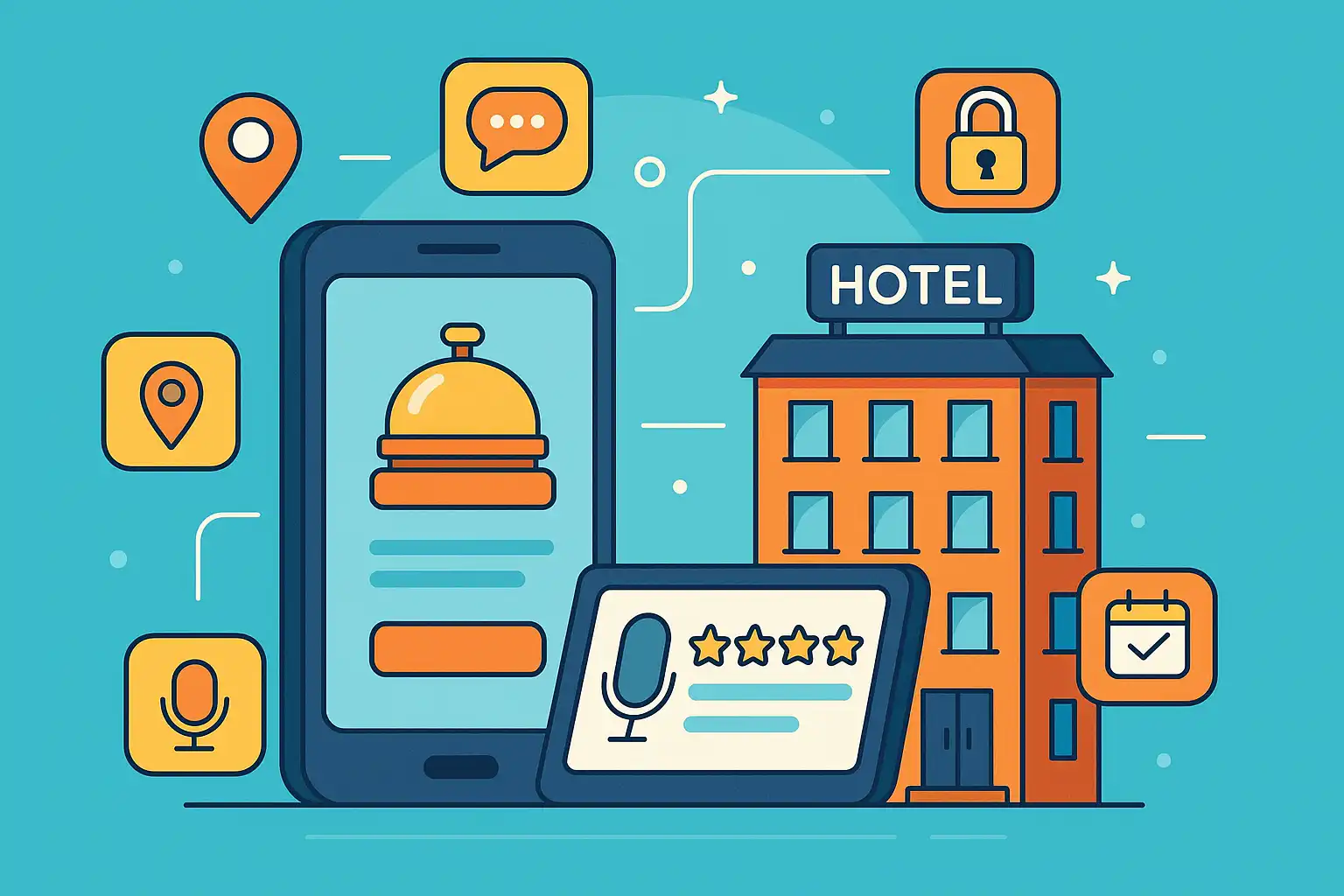
What is a Hospitality App?
Think of a hospitality app as a one-stop digital platform that not only simplifies hotel operations but also makes every part of a guest’s stay smoother and more enjoyable. Unlike basic booking sites, these apps act as a direct link between guests and hotel services, all accessible through their smartphones or tablets.
At their heart, top hospitality apps bring together key business functions — from syncing bookings with property management systems, to automating check-in and check-out, managing room service orders with live menu updates, enabling instant guest-to-staff communication, and gathering feedback to continually improve service quality.
This shift from traditional hotel management to app-based solutions reflects changing guest expectations and operational needs. Hotels now rely on these digital tools to automate routine tasks, tailor services to individual guests, and offer contactless experiences that have become essential. Advanced features like mobile room keys, AI-powered digital concierges available 24/7, and automated guest requests are becoming standard.
It’s important to distinguish hospitality apps from general booking platforms. While booking platforms focus mainly on reservations and price comparisons, true hospitality apps enhance the entire in-stay experience by integrating operations, coordinating services, and engaging guests personally—boosting loyalty and revenue along the way.
Why Hospitality Apps Are Essential for Modern Hotels
The benefits of hospitality apps go far beyond making things easier for guests. They bring real, measurable improvements in how hotels operate, compete, and grow their revenue.
Streamlining Operations and Cutting Costs
Hospitality apps help simplify operations by automating many tasks that used to require manual effort. Mobile check-in lets guests skip the front desk lines, cutting down on staffing needs during busy times and reducing the costs of plastic key cards. Many hotels see labor cost savings of 15-20% after adopting mobile check-in.
Automation extends across housekeeping, maintenance, and service delivery. Staff get real-time updates on guest needs, improving response times and service quality, while reducing the overhead of coordinating across departments.
Gaining a Competitive Edge with Happier Guests
Hotels using advanced hospitality apps often see higher guest satisfaction scores and stand out with unique service offerings. Digital concierges provide instant help and personalized recommendations, creating memorable stays that lead to great reviews and repeat visits.
Contactless hotel services have become an important factor for travelers concerned about health and safety. Hotels that offer mobile payments, digital room keys, and app-based ordering report guest satisfaction scores 25-30% higher than those sticking with traditional methods.
Boosting Revenue and Direct Bookings
Hospitality apps are powerful tools to increase revenue. Features like in-app dining, spa, and activity ordering typically see 15-25% higher conversion rates compared to traditional methods, thanks to easier access and better presentation.
Dynamic pricing tools let hotels adjust rates in real time based on demand, market trends, and guest preferences. Machine learning analyzes booking patterns and competitor pricing to optimize revenue per available room while staying competitive.
Direct bookings are critical as OTA commissions rise. Top hospitality apps help hotels maintain ongoing relationships with guests between stays, promoting special offers, hotel loyalty perks, and exclusive packages that encourage booking directly instead of through third parties.
Meeting Today’s Digital Expectations
Guest expectations have shifted dramatically toward digital-first, contactless services—and hospitality apps deliver exactly that. Properties without strong mobile capabilities risk losing guests to competitors who offer seamless digital experiences that minimize physical touchpoints while maximizing convenience and personalization.
In fact, 78% of travelers in 2025 expect mobile-enabled services as standard, especially younger guests who prefer app-based interactions over front desk visits. Hotels that don’t keep up risk falling behind.
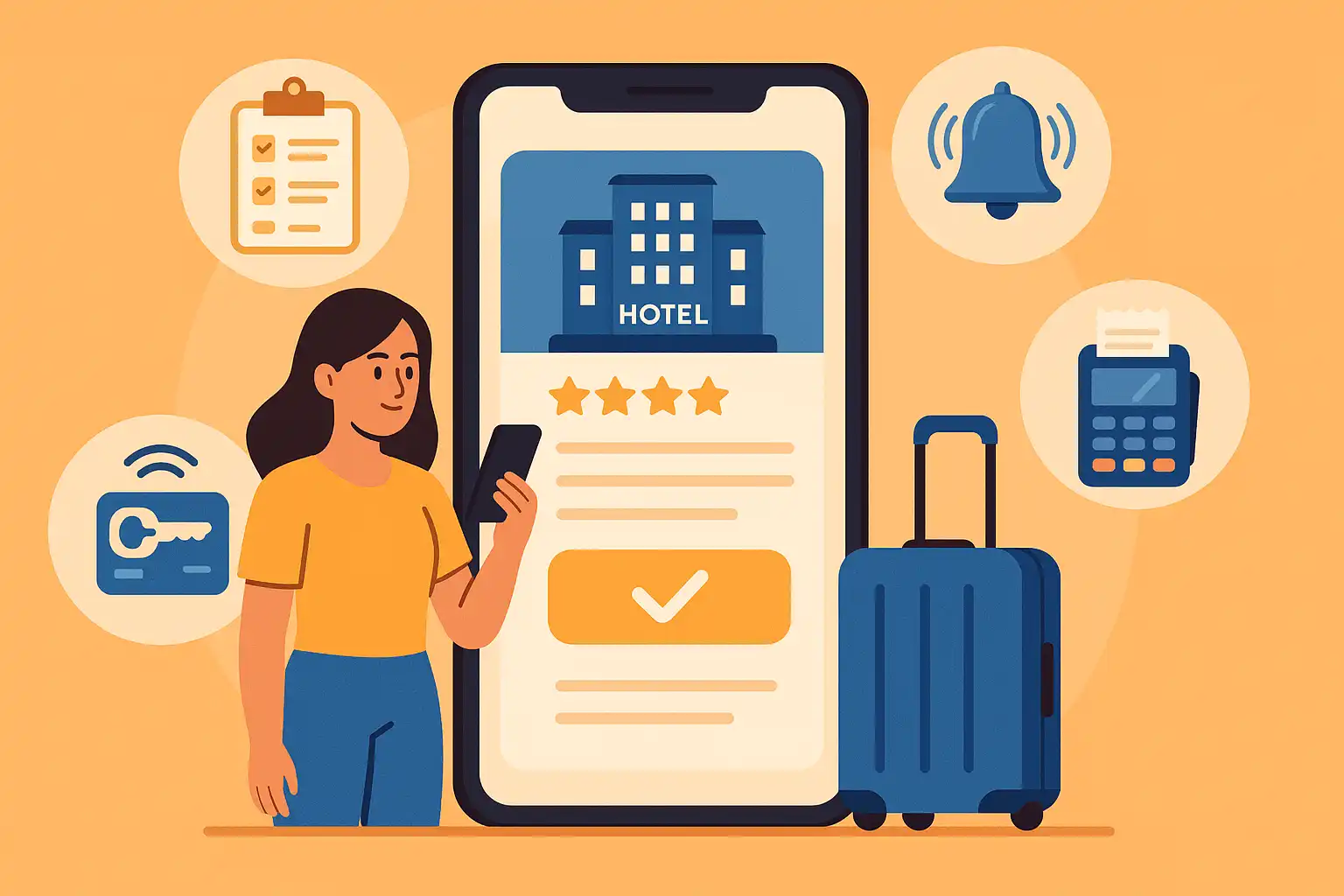
Essential Features Every Top Hospitality App Must Have
The best hospitality apps pack a comprehensive set of features that cover guest needs and deliver operational value—making the investment worthwhile.
Core Functionality and Seamless Integration
Top apps offer smooth hotel booking management that syncs reservations across all channels, preventing overbooking and keeping availability accurate. Real-time inventory management updates room status, amenities, and services instantly, supporting dynamic pricing and clear guest communication.
Multi-channel integration connects the app with property management systems, point-of-sale platforms, CRM tools, and third-party services. This unified platform ensures data consistency and powers advanced analytics for smarter decisions and better efficiency.
Payment features should support mobile options like Apple Pay, contactless transactions, split billing, automated invoicing, and secure storage of payment info. Multi-currency support and accounting software integration help keep cash flow organized.
Tools for Guest Communication and Engagement
Effective apps include in-app messaging that links guests directly with the right staff, push notifications for updates and offers, and multilingual support to accommodate international travelers. Conversation history and automatic routing to departments keep communication smooth.
Guest engagement features often integrate loyalty programs showing point balances and redemption options, personalized content based on preferences and history, and social sharing tools to encourage positive reviews and word-of-mouth.
Operational Management and Team Coordination
Hotel staff management features let managers assign tasks in real time and track completion for housekeeping, maintenance, and service teams. Automated scheduling optimizes staffing based on occupancy and demand, while performance data offers insights into productivity and service quality.
Comprehensive reporting tracks KPIs like guest satisfaction, response times, revenue from app orders, and operational efficiency—helping managers make data-driven improvements.
Maintenance tracking allows staff to report issues with photos, prioritize based on urgency and guest impact, and monitor progress. Integration with vendor management systems streamlines coordination with external providers.
Guest-Facing Features
Mobile check-in and check-out include QR code scanning, document uploads, room selection, and instant digital key generation. Early check-in and late checkout options can be managed based on availability and loyalty status.
Digital room keys replace plastic cards with secure, encrypted access that logs entry and supports temporary sharing. Integration with smart locks enhances security and convenience.
Room service ordering features real-time menu updates, dietary accommodations, scheduling options, and integrated payment processing. Orders connect directly with kitchen management systems for smooth preparation.
Local recommendations and booking integration offer personalized suggestions for dining, activities, and transport based on guest preferences, weather, and availability, enhancing the guest experience and generating partnership revenue.
Staff Management Features
Real-time task assignment balances workloads across teams, with automated notifications for urgent issues and visibility into task progress.
Shift scheduling includes notifications for changes, time-off management, and payroll integration for accurate compensation. Scheduling accounts for skills and workload balance.
Training modules track staff progress and certifications, reducing classroom time and standardizing service quality. Performance tracking highlights training needs and improvement areas.
Communication tools enable instant messaging between departments, emergency alerts, and broadcast messages, with message history and read receipts to ensure clear communication.
Hospitality App Requirements by Property Type
Different hotel types have unique needs. Tailoring app features to these requirements maximizes value and guest satisfaction.
Luxury Hotels and Resorts
Luxury hotels need VIP guest recognition that triggers personalized service protocols, showing preferences and history for exceptional experiences.
Concierge services book exclusive experiences, events, spa appointments, and restaurant reservations, with real-time availability checking.
Multi-property loyalty integration keeps guest preferences and status consistent across locations.
Advanced room automation controls lighting, climate, shades, and entertainment, learning guest preferences for seamless comfort.
Boutique Hotels and Independent Properties
Boutiques benefit from customizable branding to reflect their unique style in the app.
Local partnerships connect guests with curated restaurants, attractions, and shops, boosting revenue and enhancing experiences.
Social media integration encourages sharing and supports marketing.
Cost-effective, scalable pricing ensures access to advanced features without high upfront costs.
Budget Hotels and Motels
Budget properties need streamlined check-in to reduce staffing while maintaining service.
Basic room service ordering supports limited menus and local delivery partnerships.
Simple maintenance reporting with photo documentation helps prioritize and schedule repairs.
Core guest communication tools handle routine inquiries efficiently.
Extended Stay Properties
Extended stay hotels require long-term account management with flexible billing cycles.
Maintenance systems handle apartment-style issues and vendor coordination.
Community features foster resident networking and local information sharing.
Flexible service options let guests adjust housekeeping, meals, and amenities as needed.
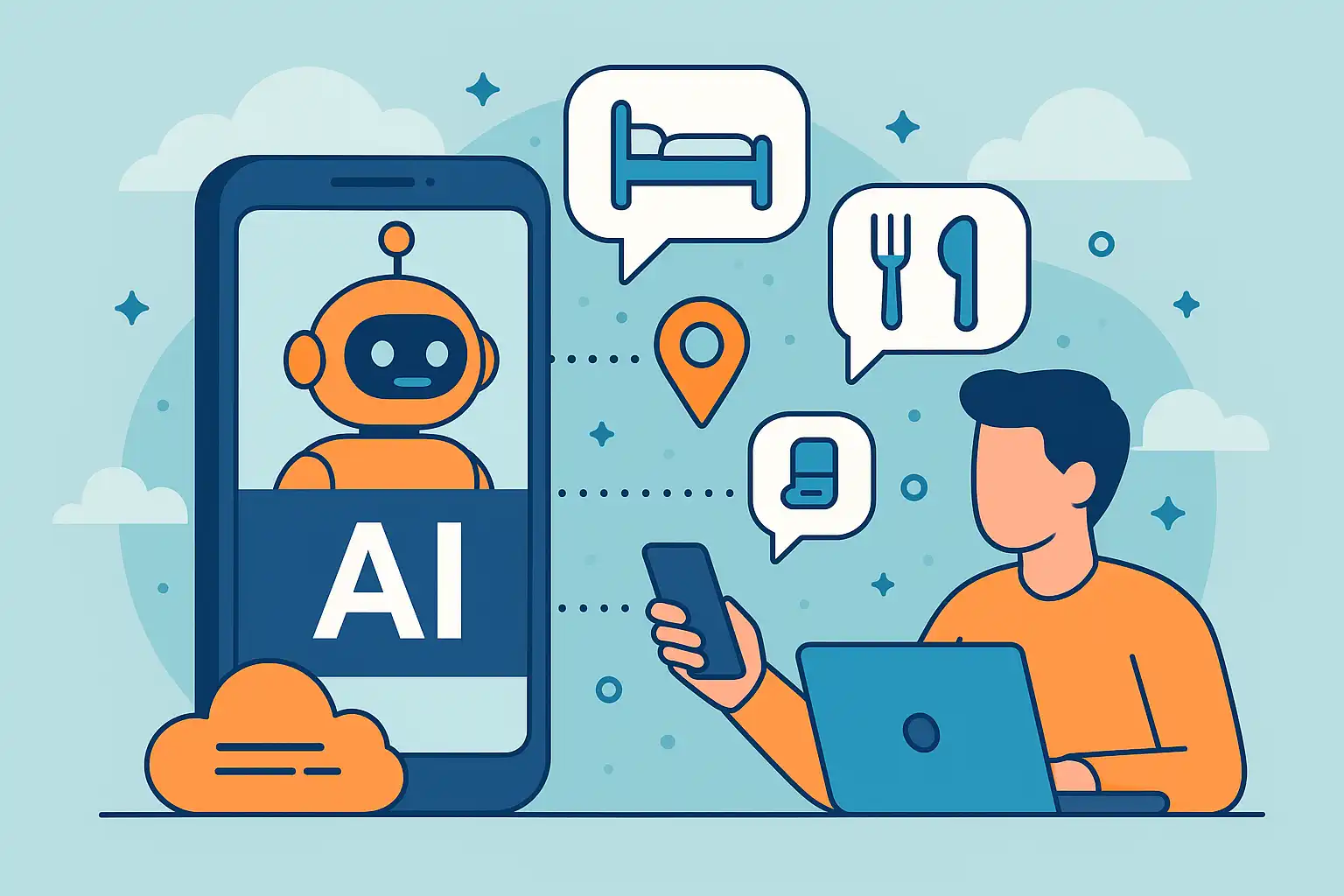
How AI and Advanced Technology Enhance Hospitality Apps
AI and new tech are turning hospitality apps into smart systems that predict guest needs, optimize operations, and personalize experiences.
Smart Personalization
AI analyzes booking, service use, and feedback to build detailed guest profiles for truly personalized experiences.
Automated room assignment matches preferences and needs for the best fit.
Personalized recommendations for dining and activities adapt to profiles, weather, and availability.
Dynamic content delivery shows relevant offers and info based on demographics and engagement.
Operational Intelligence
Predictive maintenance spots potential equipment failures before they affect guests.
AI-powered scheduling optimizes staff workloads based on forecasts and capabilities.
Revenue management uses real-time market data to adjust pricing dynamically.
Guest satisfaction prediction identifies issues early for proactive service recovery.
Prostay: Leading the Future of Hospitality Technology
Prostay is a top hospitality app provider delivering comprehensive solutions that meet modern hotel needs, raising the bar for guest experience and operational excellence.
Its AI-driven features enable predictive analytics, personalized experiences, and operational optimization unmatched by competitors.
Seamless PMS integration ensures real-time data sync and robust reporting, breaking down data silos.
Award-Winning Guest Experience Tools
Prostay offers advanced AI-powered features designed to enhance guest interactions through two distinct functionalities.
The AI digital concierge provides 24/7 multilingual support, assisting guests seamlessly with personalized recommendations, service requests, and real-time communication in their preferred language. Separately, the AI-powered reservations agent focuses specifically on managing bookings by helping guests make, modify, or cancel reservations efficiently, also supporting multiple languages to ensure a smooth and convenient experience. Alongside these, Prostay includes secure mobile key technology and streamlined service request management to further elevate guest satisfaction.
Successful Implementation Case Studies
Luxury resorts report 30-40% satisfaction score increases within six months of Prostay deployment.
Boutiques maintain brand identity while improving efficiency and revenue.
Budget properties save 20-25% in labor costs through automation.
Innovation and Emerging Technology Adoption
Prostay embraces voice controls, augmented reality, IoT integration, and blockchain for security and transparency.
Regular updates incorporate client feedback and industry trends.
Comprehensive Support and Training Programs
24/7 expert support, detailed implementation assistance, and ongoing staff training ensure smooth adoption and maximum ROI.
Why Choose Prostay Over Competitors
Prostay’s open API architecture enables seamless integration with hotel systems and third-party platforms.
Customizable solutions adapt to property needs without sacrificing core features.
Proven ROI includes 25-35% increases in direct bookings and enhanced guest satisfaction.
Implementation Best Practices and Common Challenges
Planning is key—budget realistically, train staff thoroughly, and set realistic timelines.
Address staff resistance by showing how technology improves their work and guest service.
Encourage guest adoption with clear communication and optional alternatives.
Test integrations thoroughly before launch.
Strategies for Successful Rollout
Pilot with a small guest group to catch issues early.
Introduce features gradually to ease adoption.
Collect feedback from staff and guests to refine the app.
Ongoing Optimization and Performance Monitoring
Track adoption rates, staff efficiency, response times, and revenue impact.
Analyze user feedback for improvements.
Keep the app fresh with updates and new features.
The Future of Hospitality Apps
Hospitality apps are evolving fast, driven by tech advances and changing guest expectations.
Emerging Technology Integration
Voice commands with Alexa and Google Assistant are becoming standard.
Augmented reality helps guests explore properties and find their way.
IoT enables smart rooms with predictive maintenance and energy optimization.
Blockchain improves data security and loyalty program transparency.
Evolving Guest Expectations and Sustainability
Guests want apps that support eco-friendly choices and show energy use and carbon footprints.
Contactless tech is expanding to elevators, room controls, and gesture recognition.
Community features connect guests with local culture and experiences.
Predictive Analytics and AI Advancement
Machine learning predicts guest preferences and optimizes pricing.
Chatbots get smarter with natural language processing.
Operational intelligence guides strategic decisions.
Personalization engines adapt offers and content in real time based on context.
The hospitality industry’s digital transformation is accelerating. Hotels that embrace comprehensive top hospitality apps position themselves for lasting success by delivering seamless, personalized, and intelligent guest experiences while optimizing operations and profitability.
Choosing platforms like Prostay, which combine integration, AI, and proven results, helps hotels stay competitive and ready for the future.
Technology-driven guest experience and operational excellence are no longer optional—they’re essential for thriving in today’s dynamic hospitality landscape.
